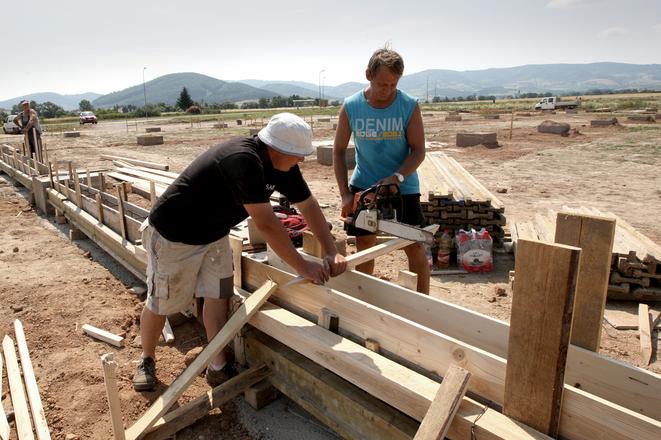It sees the solution to an unfavourable situation in the construction sector in the adoption of a new, functional platform. The sector, as an important part of the national economy, needs clear legislation and must be governed by a separate ministry, according to the chamber.
“Our construction industry cannot be as a low-grade appendage part of other state central authorities, even if we cite operational austerity,” the stance of the presidium of the SKSR, sent to the SITA newswire by its president Ivan Pauer in early January, states. “Thus, as one of the important positive solutions for our construction sector, we propose political parties and the future government to emerge from the upcoming election, to include creation of a separate construction and regional development ministry as one of its first and crucial government programmes.”
“Establishing, merging or abolishing any bodies of state administration must be a result of expert debate and, of course, it requires also political support and consensus,” spokesman of Transport, Construction and Regional Development Ministry Martin Kóňa, told SITA. “We are shortly before parliamentary elections and this is an issue, if it is one at all, for the next government.”
A construction ministry existed already during the first government of Robert Fico and secured the coordination of use of EU funds. Then, it was led by nominees of the Slovak National Party (SNS, then-ruling Smer party’s coalition partner) Marián Janušek and Igor Štefanov. Later, the ministry was cancelled, also due to the so-called bulletin-board tender scandal, and the issue of construction and regional development became part of the Transport Ministry.
The chamber also calls for a new construction law and for passing a truly new, progressive law urbanism as well as the law on construction order. It opines that the construction industry is not just about business and politics, but mostly about construction order and basic systemic legislative technology and administrative rules for the whole sector, and for the whole economy. The absence of city planning caused, according to SKSR, that this kind of planning has become arbitrary ad hoc action to solve acute needs and interests of investors, without a wider view on planning development of the countryside and the development of society in at least 15 to 20 years.



 (source: Sme)
(source: Sme)